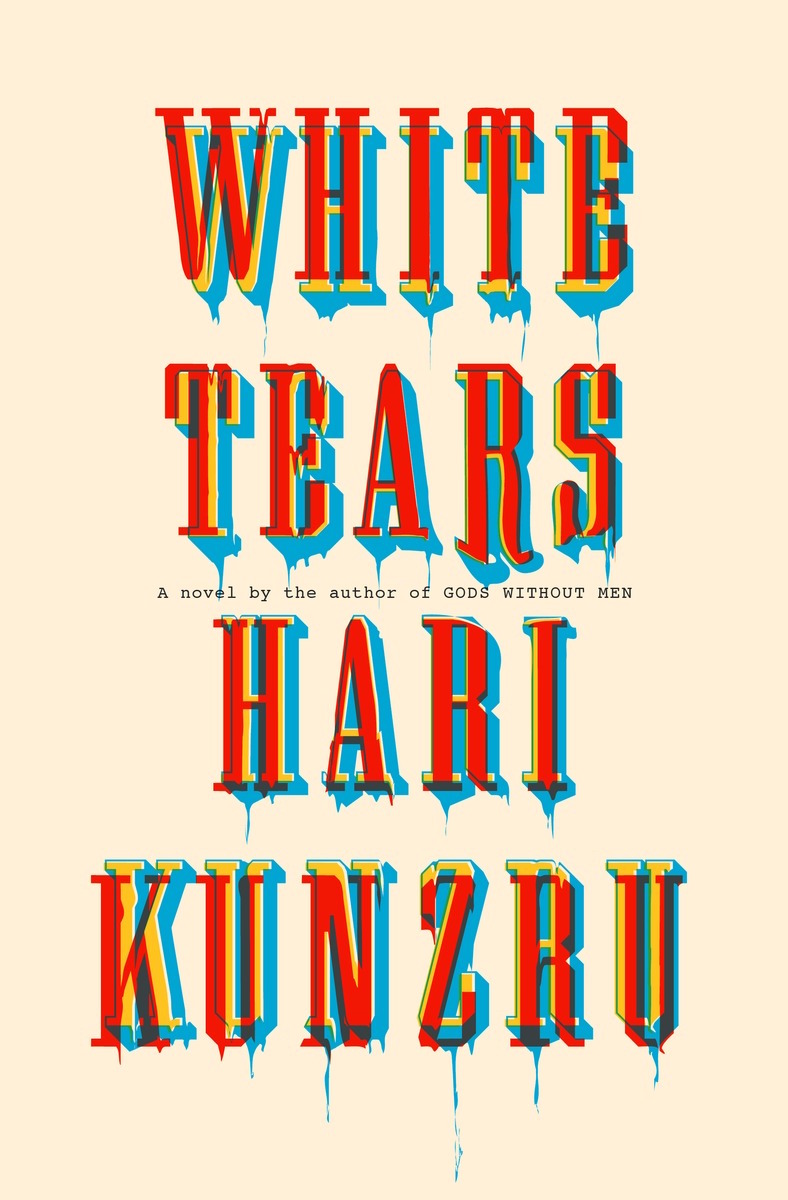When Seth, the protagonist of Hari Kunzru’s new novel White Tears, meets a record collector who might be able to sell him a vinyl containing a rare blues song, he’s unsettled by the man’s appearance. “Shock of white hair, thick black eyeglasses that scanned as fashion until you checked the raincoat with the grubby collar, the unpleasant-looking scab on his forehead,” Kunzru writes. “Exactly who I did not want to meet. Very slowly, he raised an index finger and pointed to me, a gesture like firing a gun.” The man, who Seth only knows through his internet avatar, is sort of a decrepit weirdo. But what else could Seth have expected from someone who’s dedicated his life to compiling the arcane and unglamorous?
Black cool has long been a cultural commodity, and nothing’s cooler than something nobody else has experienced. These record collectors, who like Seth are white, pursue the rarest music as a badge of pride—a marker denoting that they’ve gone far beyond the average listener’s willingness to learn about more than what their Spotify Discover playlists deliver. But rarely is this music obscure because it was intended to be, and in reclaiming the sound without the story—the actual story, which might be buried along with the people who lived through it—the listeners value the privilege of exclusive access to the past over the story it tells. Their uncritical arrogance in staking this claim makes them villains of another sort, even if they’ve never done anything explicitly racist.
Such is the province of White Tears, a novel about a mysterious recording found by Seth and his best friend, the handsome slacker Carter Wallace, whose love of music is enabled by his standing as heir to a family fortune. Seth operates a studio with Carter and is obsessed with recording the errant sounds found around New York, which he does with a handset device by walking through the city. One day, he happens to pick up a haunting, enigmatic blues lyric that appears to be sung by a man playing chess in a park. After some haggling about where it came from, he and Carter flesh out the bare bones recording into something that sounds like “a record that’s been sitting under someone’s porch for fifty years,” and put it online as a song by Charlie Shaw, a made-up name. (The ethical discussion is skipped entirely.)
Soon after, they’re jolted out of this play-fantasy by the record collector, who tells them something unnerving: Charlie Shaw is real, and he has a history that Seth and Carter want no part of. More than a weird naming coincidence, he’s a lingering presence from America’s twisted racist history—the legacy of slavery bleeding into Jim Crow, police brutality, the prison-industrial complex, the brutalized bodies prevented from having a say in their life. And for all their earnest fascination with recorded sound, Seth and Carter don’t possibly understand what they’re playing with by ripping silenced black voices from the void.
Though their love of music seems sincere, it slowly becomes clear that it isn’t without its flaws. But there’s no one in their bubble to point out the obvious: They’re well-off white boys totally focused on the consumption of black music without thinking about the implications of that fixation. They’re vultures, sort of, picking away at culture without grasping what it represents. “This is our music,” Carter tells Seth. “We live it. We feel it.” He’s completely entitled, the unsurprising result of coming into a great inheritance.
Seth—the brainy, awkward one—is annoyed by this arrogance, but the accompanying perks are too fun to pass up. Who wouldn’t want to make a bunch of money by playing music? “You seem to have a very high opinion of yourself,” Cornelius, Carter’s much more responsible brother, tells Seth. “Of your importance in the scheme of things.” Seth definitely lacks power, or confidence; rather than tell a crush how he feels when they’re at a party together, he ends up literally watching her have sex with another man. But when his life is upended by a shocking turn of events, he has no choice but to involve himself more directly in the story.
He and Leonie, Carter’s boho artist sister, venture down South to solve the mystery of Shaw, who like many other obscure blues musicians known to us only through a song or two, exists on the margins of history. What they find takes on the texture of a ghost story, as Seth and Leonie bond in sweaty motels indistinguishable from each other, on the trail of a man who might not exist but might be implausibly real. “With each mile we are heading further into the past,” Kunzru writes. “This is what I made her understand, that night in her apartment. That we had to repeat something, to go back to meet the force that is reaching out towards us from history.”
Given the presence of the supernatural in such a serious novel, White Tears has a tight landing to stick–the spiritual presence he is compelled by can’t be written away as a dream. Seth’s rationality diminishes as the book paces toward its violent conclusion, with Kunzru’s prose rising to a hypnotic, entrancing level. The book cuts across time periods and perspectives, sometimes in the same chapter, as Seth falls further into the horror of the 20th century, for which Charlie is just a proxy. Seth doesn’t deserve what happens to him, but rarely does anyone.
Though the novel feels especially resonant at a time when we continue to debate how reparations can ever be made for slavery—and how white consumers should think about the history and issues that produce black art—Kunzru avoids the cheap moralism of the offended. Instead, it does the work of reminding the reader that the mainstreaming of recessed history in the name of “cool” by corporations and well-meaning, rich white folks is a continued embarrassment. Seth’s feverish pursuit of Charlie Shaw’s story suggests that making up for the past might be impossible as long as people with power and access refuse to give up what they’ve killed for. That stubbornness is what curdles pacifism into malice, and the dead and denied eventually come to claim what they’re owed, in one way or another.





